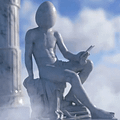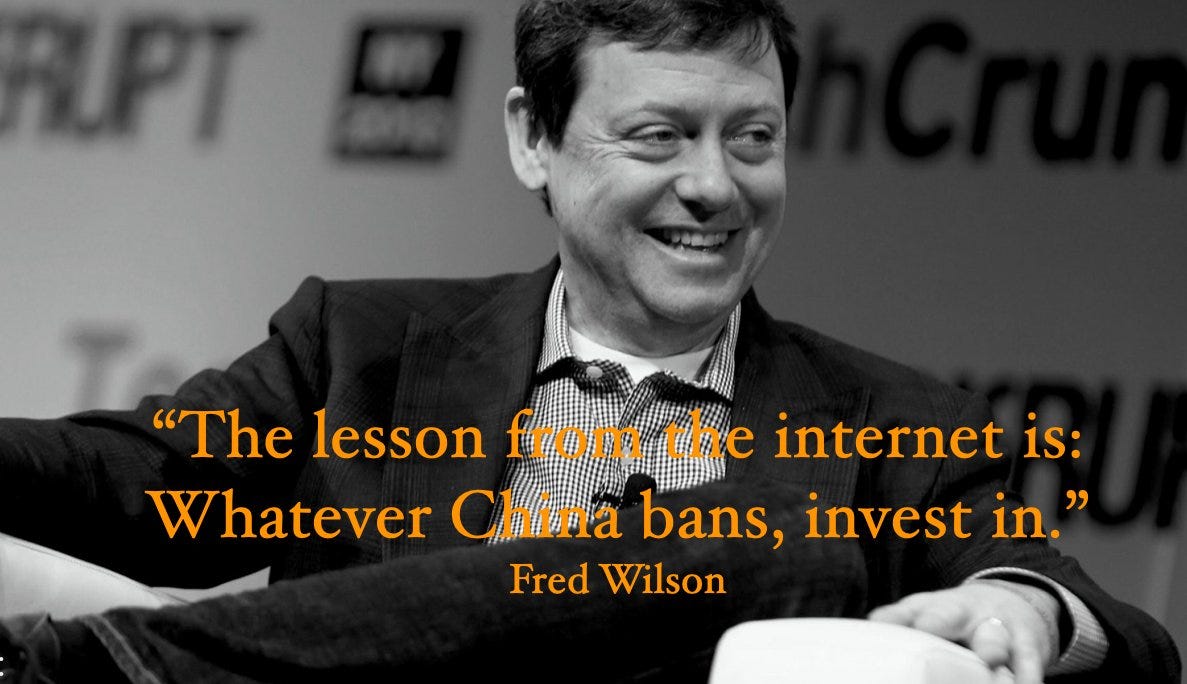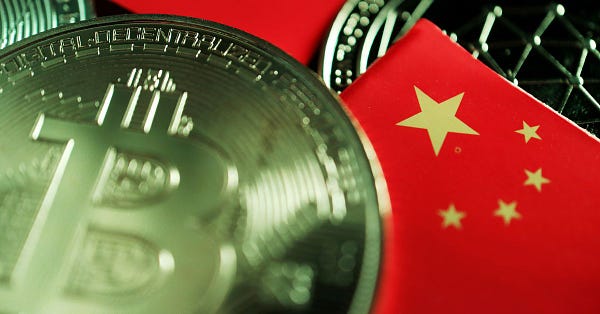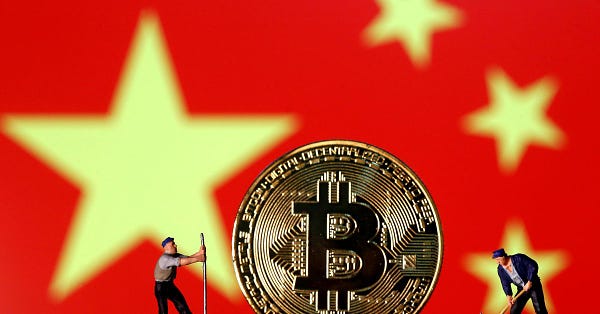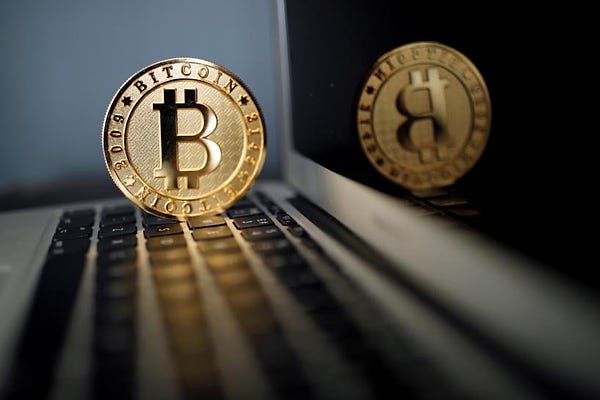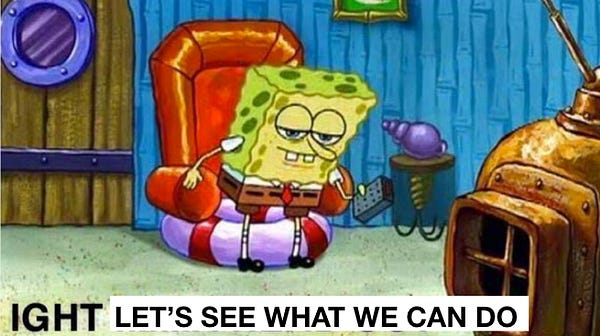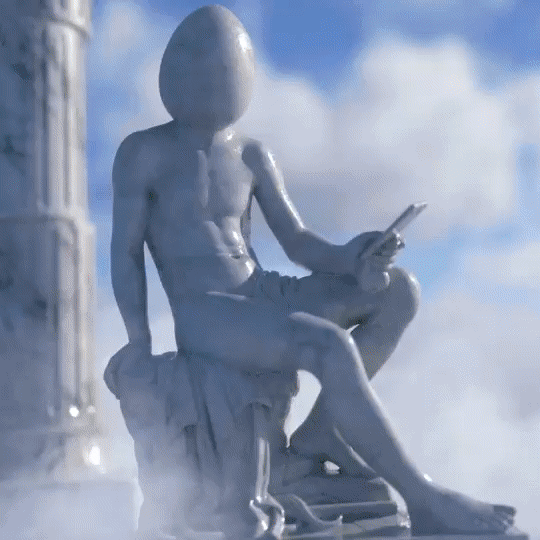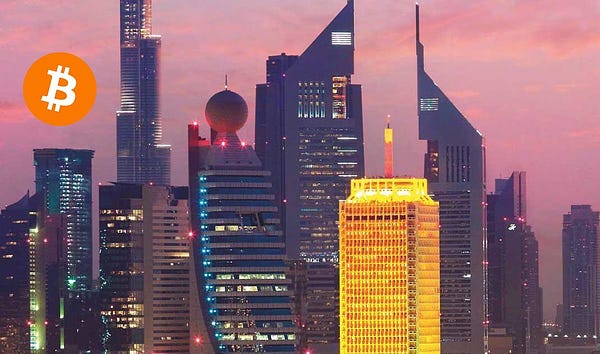In this issue:
Here we go again, I guess
Why are so many Bitcoin enthusiasts anti-vax? (reader submitted)
A new kind of blue checkmark
Here we go again, I guess
On Friday various Chinese authorities including the People’s Bank of China (PBOC) and the National Development & Reform Commission (NDRC) published new regulations explicitly banning cryptocurrency exchanges and setting out a plan to eliminate Bitcoin mining within the country entirely.
Does that sound familiar? Maybe you’re remembering May of this year:
Or perhaps you’re remembering late 2019:
Or maybe it was 2017?
China has banned Bitcoin dozens of times now, it never quite seems to stick. China bans Bitcoin the way stormtroopers shoot at protagonists. Bitcoin’s price had climbed up to ~$45k/BTC and then when the news broke dropped ~10% in a few hours. Having performed the obligatory traditional panic, the market pretty much immediately shrugged it off and began grinding slowly upwards again. At time of writing Bitcoin is trading at $42.7k/BTC. It never fell below $40k/BTC.
The stated reasons for the crackdown are retail financial protection and management of the power grid - but hovering ominously in the background is the looming threat of an Evergrande triggered debt crisis. Bitcoin (and other cryptocurrencies) represent an escape hatch for wealth attempting to flee China. It’s not hard to imagine that Chinese authorities are worried about capital flight right now.
The market keeps taking the wrong lesson from Chinese Bitcoin bans. It is not interesting that China is banning Bitcoin again - China has been banning Bitcoin for years. What is interesting is that none of the bans have worked.

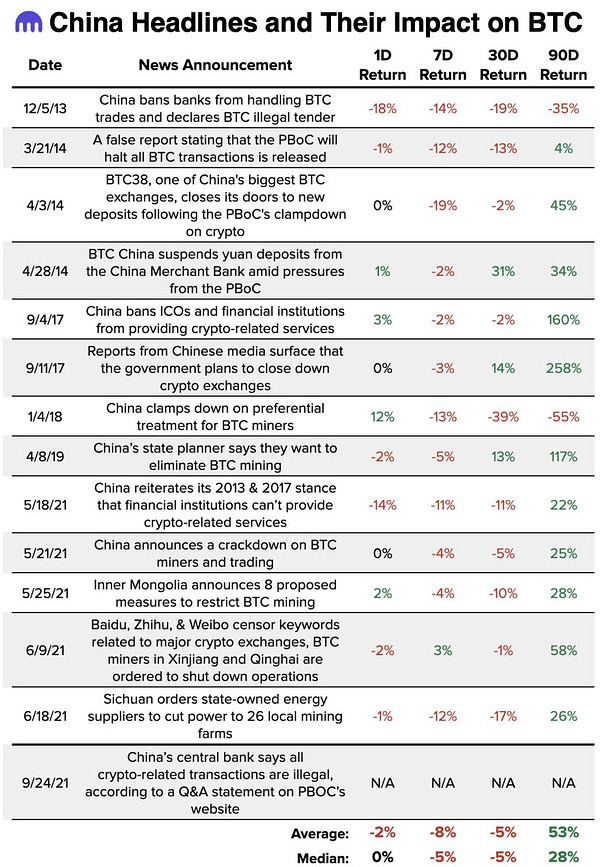
Why are so many Bitcoin enthusiasts anti-vax?
“Why do so many Bitcoin promoters insist that Bitcoin is synonymous with [eating meat / liking guns / refusing the covid vaccine / etc]? Isn’t it just money?” - A lot of readers
The basic purpose of Bitcoin is to resist control - specifically government control. For most people the idea of resisting government control is pretty uncomfortable - it feels implicitly suspicious and criminal. That’s why so many people still hold the belief that Bitcoin’s main use is crime even though illicit transactions are relatively rare.
People who are more comfortable with the idea of resisting government control are naturally more comfortable with the idea of Bitcoin. People who don’t trust the government are predisposed to like Bitcoin in pretty much the same way that people who do trust governments are predisposed to be suspicious of it.
Personally I don’t think general purpose distrust of governments is especially intelligent or useful (I am fully vaxxed) but I also don’t think trusting governments in all situations or with any powers is intelligent or useful either. Money is part of the relatively rare but very real category of things that are too important to let a government control, like speech or religion.
Crackpots who tell you to use Bitcoin because the government wants to implant microchips in you at the behest of George Soros are like broken clocks that still manage to be right twice a day. That’s one of the reasons it’s important not to tribalize ideas. Sometimes the idiots are right.

A new kind of blue checkmark
First in the exchange above with American DJ 3Lau and then more formally in a company event on Thursday, Twitter has indicated plans to verify NFT avatars that belong to the user wearing them.1
"It’s a way to support creators making this art with a stamp to demonstrate authenticity. By allowing people to connect their Bitcoin wallets, they can track and showcase their NFT ownership on Twitter." - Esther Crawford (Twitter Executive)
To be honest this line is a bit confusing? There are NFTs on Bitcoin but they are definitely not the NFTs that 3Lau had in mind when he asked for verification. 3Lau’s avatar is a CryptoPunk, which is (like most major NFT projects) native to Ethereum. Jack Dorsey has been pretty dismissive of Ethereum overall but Twitter also released a suite of 140 official company NFTs on Ethereum:
Twitter supporting verification of ownership on profile pictures would considerably increase the status of already very expensive status objects, but it would also put Twitter in a pretty precarious position. If they only verify NFT ownership then anyone can make a counterfeit version of any NFT and verification will be meaningless. Verifying that the NFTs are authentic will prevent counterfeits and knock-offs, but it is inevitably subjective.
Suppose I create an NFT which is someone else’s much more expensive NFT, only upside down. Is inverting a profile image enough to make it meaningful new art, or is my NFT a knock-off? Which projects are sufficiently important to justify verification? What projects are sufficiently artistically unique? I’m not sure Twitter is actually ready to be responsible for the definition of art.
These are not arcane academic debates. Fortunes will be made and crushed by the decisions around which projects to verify and which to skip. The technical details of verifying NFT ownership are relatively simple but the product implications of deciding what ownership should mean are actually quite profound.
Other things happening right now:
China bans Bitcoin, Dubai moves to embrace it. The main thing to observe is that all the major political powers have started treating Bitcoin as real.
When it comes to China bans, Bitcoin is in good company:

Some friends and I are attempting to launch a crypto-native NFT museum, dedicated to redefining what curation can mean with non-fungible technology. If you didn’t see my announcement about it yesterday, check out our Twitter account to learn more:

They also announced Bitcoin tipping over Twitter using the Lightning Network. I appreciate why people are excited about that but I have also seen enough crypto-tipping services fail at this point that I’m a bit bored by them. Giving money away to strangers on the internet is not the killer use case for … anything. Nobody wants to do that.


